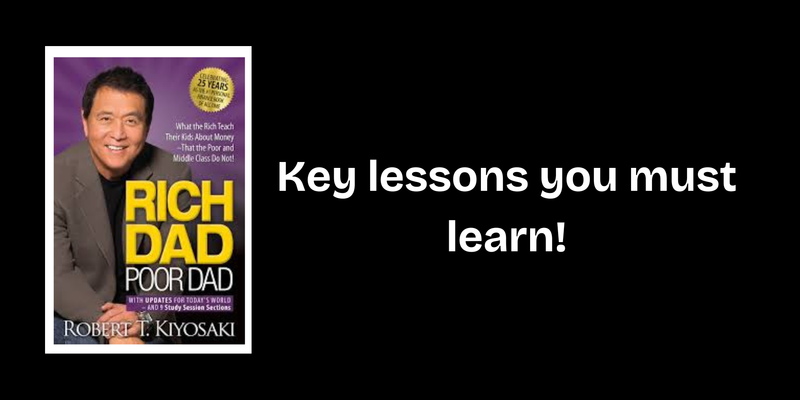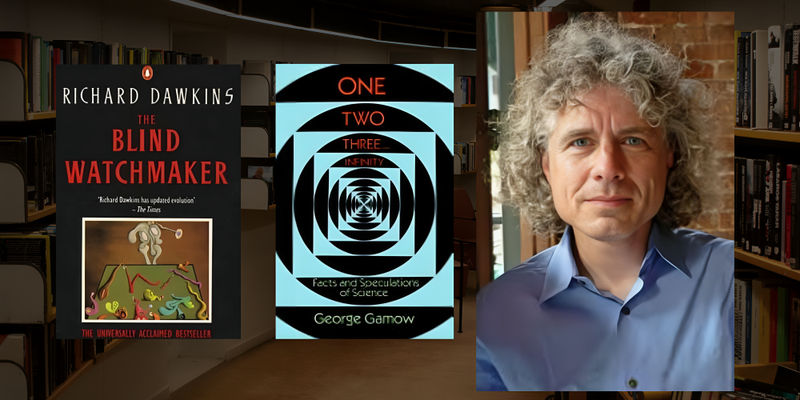Highlights
Rich Dad Poor Dad: Transform Your Financial Future
Rich Dad Poor Dad by Robert Kiyosaki is more than a financial guide; it represents a shift in our understanding of wealth, success, and financial independence. This widely acclaimed book contrasts the monetary views of two father figures: the “Poor Dad,” who adheres to traditional beliefs around education and security, and the “Rich Dad,” who possesses a unique perspective on money, investing, and entrepreneurship. Kiyosaki highlights the essential differences between the affluent and the middle class by showcasing their differing ideologies. For those eager to escape financial hardship and cultivate enduring wealth, the insights shared in this book are crucial. Below are seven essential lessons that can revolutionise your financial destiny.
The Rich Don’t Work for Money—They Make Money Work for Them
Many individuals exchange their time for a paycheck, primarily working for money. In contrast, wealthy individuals allow their money to work for them by investing in assets that provide passive income. Rather than depending only on a salary, they establish businesses, invest in real estate, and obtain assets that appreciate over time.
Example: Consider property owners who receive rent without having to work daily; their investments earn revenue while they pursue other interests.
Takeaway: Shift your focus towards income-generating assets instead of solely depending on a paycheck. Explore opportunities in real estate, stocks, or side businesses that can deliver passive income.
Financial Education Is More Valuable Than a High Salary
Kiyosaki emphasizes the vital role of financial literacy in wealth accumulation. Numerous high earners face financial struggles due to a lack of financial understanding. Knowing how money, taxes, and investments work holds more significance than merely earning a higher income.
Without sound financial knowledge, even a substantial salary can disappear due to poor financial management. Conversely, individuals with lower incomes but exceptional financial skills can amass wealth over time.
Example: Look at lottery winners who end up bankrupt within a few years due to mismanagement of their newfound wealth.
Takeaway: Dedicate time to enhance your understanding of personal finance, budgeting, and investing. Read literature, attend seminars, or seek advice from financial experts to elevate your money management capabilities.
Buy Assets, Not Liabilities
A key lesson from Rich Dad Poor Dad is differentiating between assets and liabilities. Assets generate money for you (such as stocks, rental properties, or businesses), whereas liabilities take money from you (like loans, luxury vehicles, or credit card debt). The affluent concentrate on acquiring assets that can deliver passive income.
Example: A new car may seem like an asset, but it depreciates rapidly and incurs ongoing costs. In contrast, investing in rental properties can yield a monthly income and may appreciate over time.
Takeaway: Before making a purchase, evaluate whether it’s an asset or a liability. Aim to expand your asset portfolio while minimising unnecessary liabilities.
Mindset Shapes Wealth
Your financial circumstances often mirror your mindset. If one perceives making money as challenging, they will hesitate to take the necessary risks to build wealth. Wealthy individuals take a different approach, seizing opportunities and calculated risks rather than opting for security.
A growth mindset fosters learning, adaptation, and problem-solving skills, while a fixed mindset constrains your potential. Rich Dad taught that financial success begins with the belief that it is achievable.
Example: Entrepreneurs frequently encounter failures prior to triumphs. Their mindset enables them to learn from failures rather than see them as endpoints.
Takeaway: Transition your mindset from scarcity to abundance by recognising opportunities instead of boundaries. Engage in positive self-talk, set lofty goals, and connect with individuals who motivate growth.
Work to Learn, Not Just to Earn
Many individuals select jobs based purely on salary rather than opportunities for learning. Kiyosaki advocates for roles that impart valuable skills—like sales, investing, and entrepreneurship—rather than merely pursuing a paycheck.
Mastering skills like negotiation, management, and market comprehension can yield significant long-term benefits beyond the current job. These skills are applicable across various facets of life.
Example: A recent graduate working in sales may earn less initially but acquires pivotal negotiation and persuasion skills that are invaluable in entrepreneurship.
Takeaway: Seek jobs or side ventures that enhance your financial and business skills. Focus on engaging experiences that challenge you and expand your knowledge.
The Power of Entrepreneurship and Investing
Rich Dad advocates for entrepreneurship and investing as routes to financial liberation. Whether it entails starting a business, investing in stocks, or securing rental properties, the goal is to create multiple income streams instead of depending on a single employer.
Entrepreneurs dictate their earnings and the extent of their time commitment, while investors can grow their wealth passively. Both paths necessitate risk-taking and ongoing learning.
Example: An individual who opens an online store can eventually automate operations, generating income even while on holiday. Likewise, an investor in dividend-yielding stocks receives regular earnings without daily effort.
Takeaway: Investigate ways to establish a side business or invest in wealth-producing opportunities. Diversify your income sources to attain financial freedom.
Take Risks, but Be Smart About It
Many fear failure, but successful individuals recognize that risk is integral to achievement. However, they don’t engage in reckless risk-taking; instead, they educate themselves, scrutinise opportunities, and take informed steps.
Managing risk wisely can foster growth. Financial acumen diminishes risk as it equips individuals with the information necessary for sound decisions.
Example: Investors who conduct thorough research before purchasing stocks are less prone to considerable losses than those who invest based on trends.
Takeaway: Maintain an openness to taking risks while ensuring you educate yourself and plan wisely before making monetary decisions. Failure can serve as a potent teacher when approached with an empowered mindset.
Rich Dad Poor Dad transcends mere financial advice; it guides readers towards cultivating the mindset and habits that promote financial success. By concentrating on financial education, investing in assets, and adopting the wealthy’s perspective, individuals can significantly reshape their financial trajectories.







